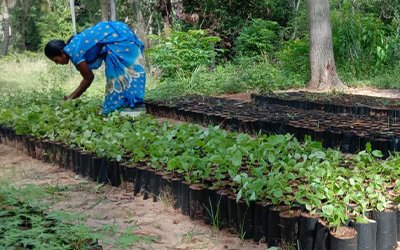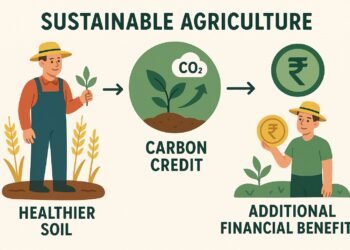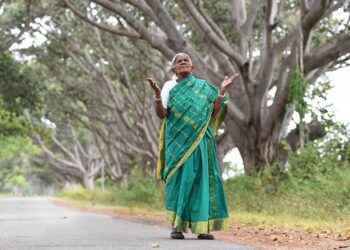Tribal and indigenous cultures in the world have played a critical role in conserving biodiversity and natural habitats since the beginnings of civilization. Nature is considered sacred and intrinsic to human subsistence by most indigenous populations who conserve ecosystems and sources of food like roots, tubers, seeds, fruits and agricultural, medicinal and horticultural plants as a way of life. However rapid industrialisation, mining, deforestation have not only compromised India’s biodiversity but also the habitats and livelihoods of tribal communities.
Bikrant Tiwary, CEO of social organisation Grow-Trees, says, “When the integrity of habitats is compromised, its dependents, be they animals or humans, suffer too. This is what is happening in once verdant zones that have undergone severe deforestation due to multiple reasons. We can not undermine the role indigenous people have played in conservation activities. That is why whenever we undertake tree plantation exercises, we invite local communities to participate in the conservation of eco-diversity, sustainable management of vegetation and identification of indigenous plants and their ethnobotanical uses.”
Smt Devi, an ardent nursery worker from afforestation project in Villupuram belongs to the Irula tribal community and says that she “experienced a significant change in her family’s quality of life and felt empowered by a sense of dignity after working in an organizational atmosphere.” Her work is also looked up to by many others in her community. Besides working in the nursery field, she is now able to contribute to her children’s education and health and is also able to live a fulfilled life with her family.
Bikrant adds that he provides not just much-needed employment opportunities to tribal communities but also a sense of purpose and fulfillment because, for indigenous communities, trees and forests are not just habitats but have a cultural, spiritual and social significance.
Says Bikrant, “To give you an example, Smt Devi’s ethnic group Irula inhabited Tamil Nadu, Kerala and Karnataka. They are known as one of the earliest settlers in the Indian subcontinent. Over 189,621 of these tribals live in Tamil Nadu and their economical and educational advancement is severely stunted. Our plantation project has engaged these communities in implementing afforestation activities which in turn have created job opportunities for them. Till now we have generated 7,000 workdays for them and have planted 85,000 local mixed saplings in the Viluppuram, Tiruvannamalai, Chengalpet, Kancheepuram, and Thiruvallur districts. The plantation area comprises 150 villages with about 5200 households of Irula settlements. Upon maturity, these saplings are expected to absorb 200,000 kg of atmospheric carbon every year.”
This initiative creates an additional source of income for many tribal families while also bringing multi-faceted ecological advantages to their environments like enhanced carbon sequestration potential, improved greenery and wildlife habitats, increased food, fuel, fruits and flowers, and improved groundwater levels.
Bikrant concludes, “The future of the planet depends on respecting the interconnectedness between all living beings and the environment they inhabit. The work we do for the earth also must benefit those who inhabit it.”






















